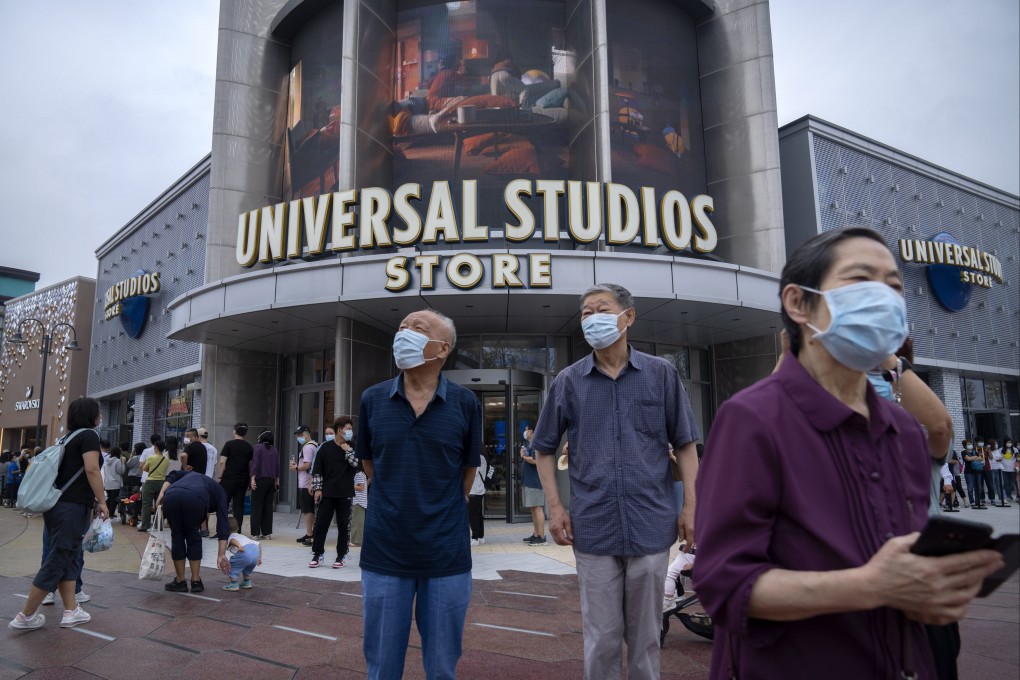China’s Universal Studios to partially reopen after six-week closure due to Covid controls in Beijing
- Phased reopening next week will allow for 75 per cent capacity and require proof of recent coronavirus test
- With a decline in infections, Beijing city is gradually easing restrictions for areas that have not reported any cases in a week

After being closed for more than a month, the Universal Beijing Resort will partially resume operations at a reduced capacity on June 15 while “adhering strictly” to China’s pandemic-control measures.
The resort had closed on May 1 as the capital city was reporting an increased number of coronavirus cases.
“Some venues may be temporarily unavailable in the early phase when we resume operations,” the world’s largest Universal Studios theme park said in a statement on Tuesday.
Upon reopening, the resort will cap the number of visitors at 75 per cent of capacity, guests must show proof of a negative coronavirus test within the last 72 hours, and other virus-prevention measures will be in place.
It features seven themed lands, many of which combine Hollywood worlds with Chinese cultural elements, including “Transformers: Metrobase” and the “Kung-Fu Panda Land of Awesomeness”.